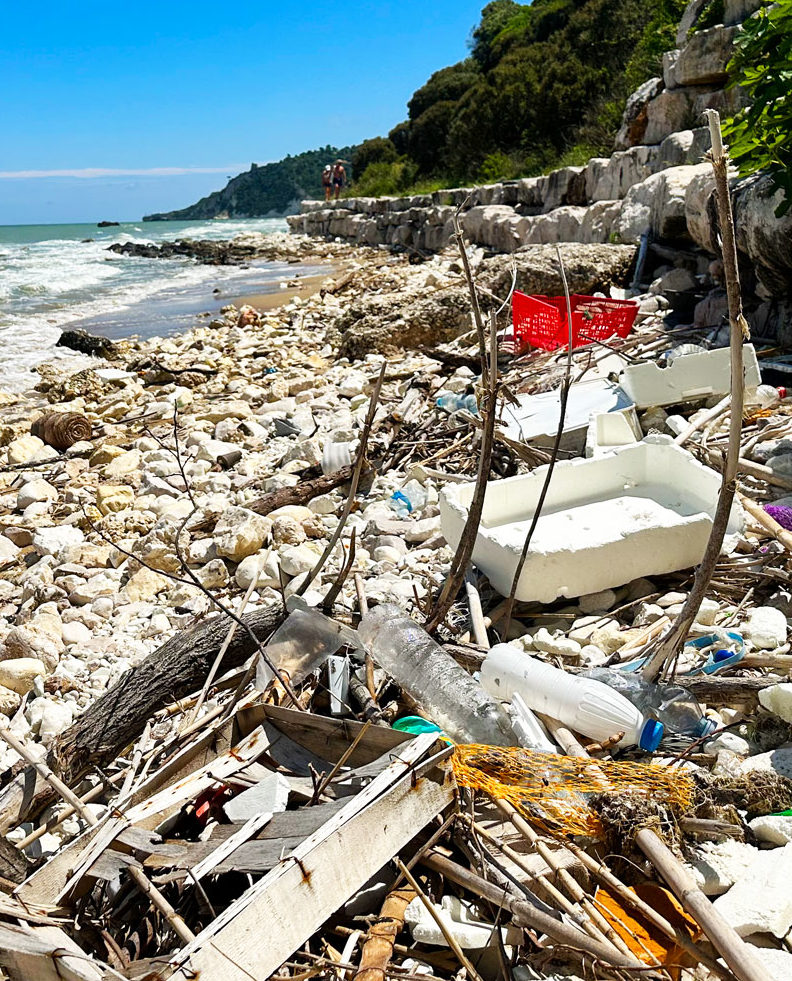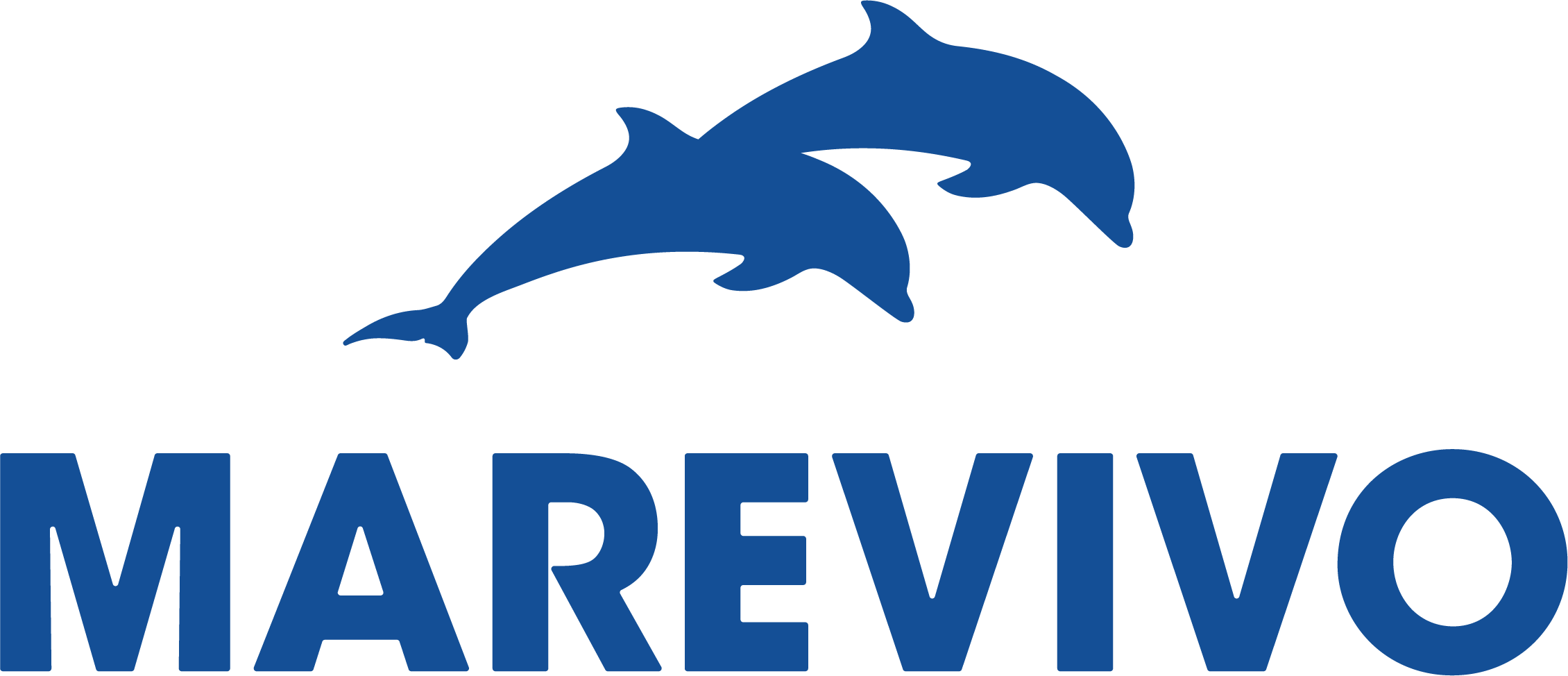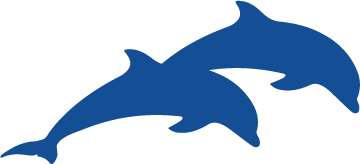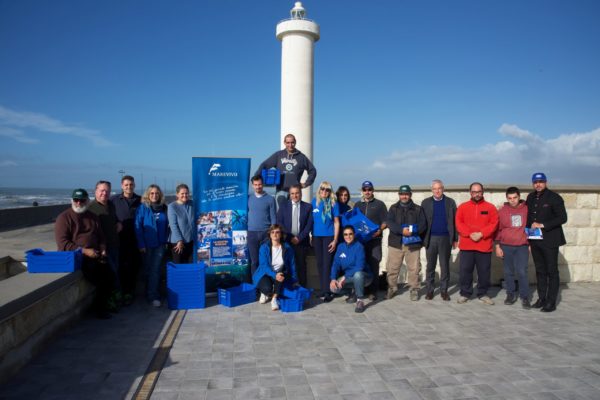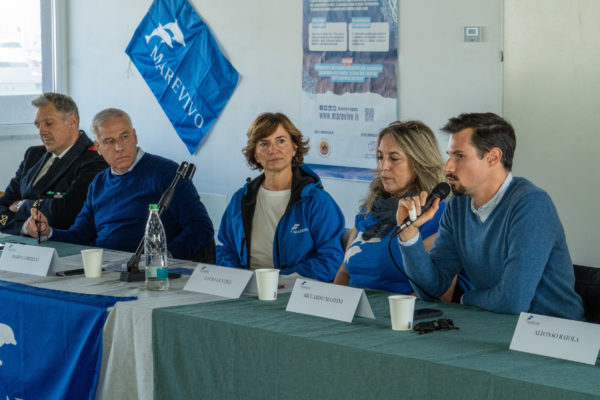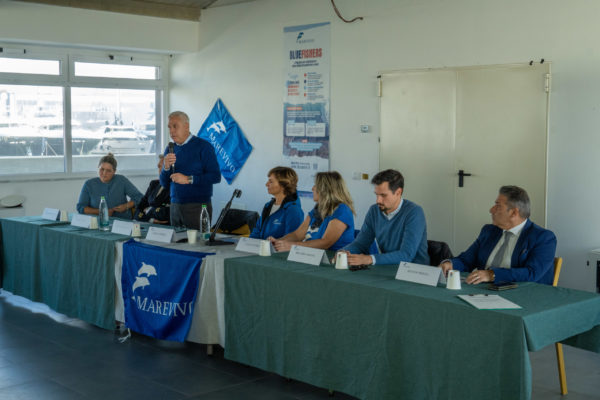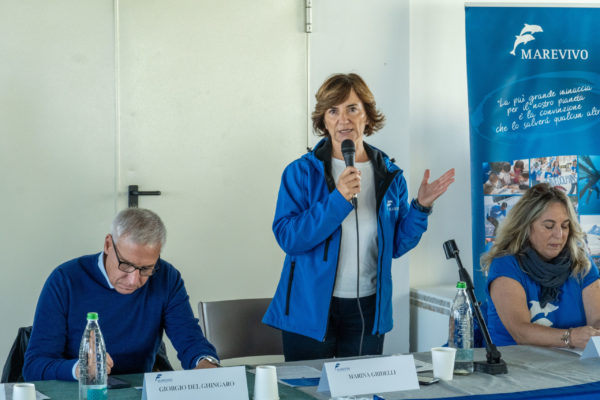Marevivo’s national campaign to tackle marine pollution caused by polystyrene, involving small-scale artisanal fishers in replacing polystyrene fish boxes with reusable and recyclable alternatives.
A VIAREGGIO LA PRIMA AZIONE PILOTA
Presentata in conferenza stampa a Viareggio, verrà realizzata nella località versiliana con il contributo della Tuscany Environment Foundation, in collaborazione con la Cittadella della Pesca e la Delegazione Regionale Marevivo Toscana.
THE PROBLEM
Among all types of plastic, polystyrene is one of the most harmful and one of the most common found waste materials, both at sea, where it disintegrates into thousands of fragments and is mistaken for food by marine animals, and along the coast, where it crumbles into the sand, and seeps into rock cracks.
OVER 50 MILLION
polystyrene fish boxes are used every year in Italy for the transport and storage of fish.
A HIGH PERCENTAGE
of these boxes ends up in the sea and on beaches, breaking down into micro-fragments.
ONE MILLION MICROPLASTICS
can be released by a single fish box once it is discarded in the water.
MISTAKEN FOR FOOD BY FISH
microplastics enter the food chain, with potential repercussions for human health.
A THREAT TO THE ENVIRONMENT
EXPANDED POLYSTYRENE (EPS)
Expanded polystyrene (EPS) is one of the most commonly found plastic waste in the sea, on beaches, and along the coastlines. As it crumbles, it mixes with sand and seeps into cracks in the rocks.
UNCONTROLLED DISPERSION
Widely used in the fishing industry, EPS contributes to marine pollution due to its uncontrolled dispersion, caused by both intentional and accidental abandonment and the material’s fragility.
A CONCENTRATE OF CONTAMINANTS
Among marine plastic waste, polystyrene is the polymer most capable of absorbing and transporting the highest number of contaminants dispersed in water.
THE BLUEFISHERS CAMPAIGN
Marevivo aims to draw policymakers’ attention to the need for legislation that bans the use of polystyrene boxes in the fisheries sector. Currently, there are no binding European regulations that explicitly prohibit the use of polystyrene in the industry. At national level, decisions are largely left to the awareness and responsibility of the stakeholders involved, including civil associations, fishers’ cooperatives, and local institutions.
THE BLUEFISHERS CAMPAIGN
Marevivo aims to draw policymakers’ attention to the need for legislation that bans the use of polystyrene boxes in the fisheries sector. Currently, there are no binding European regulations that explicitly prohibit the use of polystyrene in the industry. At national level, decisions are largely left to the awareness and responsibility of the stakeholders involved, including civil associations, fishers’ cooperatives, and local institutions.
